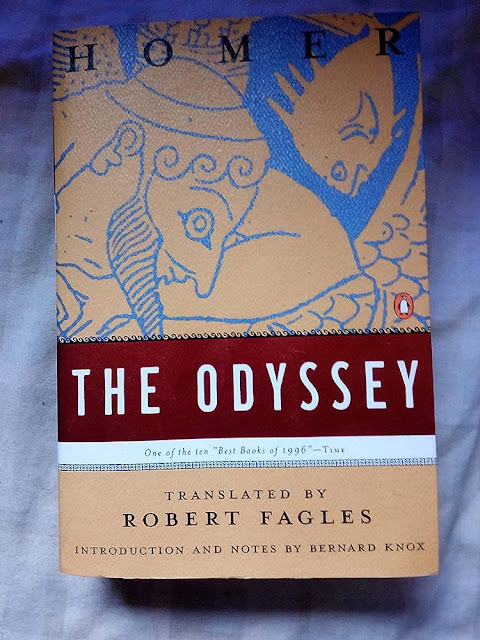"The Odyssey" by Homer: A Journey of Adventure, Myth, and Human Resilience
 |
| The Odyssey |
Homer's epic poem "The Odyssey" stands as a cornerstone of ancient Greek literature, capturing the spirit of adventure, the power of mythology, and the enduring themes of human resilience and identity. Composed in the 8th century BCE, this epic narrative has transcended time and culture to become a universal testament to the human experience.
An Epic Adventure:
"The Odyssey" chronicles the 10-year journey of Odysseus as he strives to return home after the Trojan War. Along the way, he encounters a series of trials, tribulations, and mythical beings, making his quest a symbol of the hero's journey—a timeless narrative archetype.
**The Power of Myth:**
Homer weaves a tapestry of myths, gods, and legends throughout the narrative. Odysseus' encounters with mythical creatures like the Cyclops, the Sirens, and the sorceress Circe add a layer of fantastical intrigue, blending reality and the supernatural.
**Themes of Identity and Resilience:**
At its core, "The Odyssey" is a story of identity and the quest for homecoming. Odysseus' struggle to maintain his identity amidst challenges and temptations reflects the universal human desire for self-discovery and belonging. His enduring resilience in the face of adversity has inspired countless generations.
**Character Complexities:**
The characters in "The Odyssey" are multi-dimensional and morally complex. Odysseus himself is portrayed as a cunning and resourceful hero, yet his flaws and decisions make him relatable and human. The rich supporting cast, including Penelope, Telemachus, and the suitors, add depth to the narrative.
**Narrative Structure:**
"The Odyssey" is divided into 24 books, each revealing a different facet of Odysseus' journey. Homer's poetic language and rhythmic style enhance the oral tradition from which the epic emerged, making it a captivating oral and literary experience.
**Enduring Influence:**
"The Odyssey" has had a profound impact on literature, art, and culture throughout history. Its exploration of themes such as heroism, fate, and the complex relationships between gods and mortals has resonated across time and inspired numerous adaptations and interpretations.
**Literary Legacy:**
Homer's influence can be seen in subsequent works of literature, including Dante's "Inferno," Joyce's "Ulysses," and even modern adventure tales. The archetypes, motifs, and themes introduced in "The Odyssey" continue to shape storytelling and narrative structures.
**A Timeless Epic:**
"The Odyssey" serves as a testament to the enduring power of storytelling. Its exploration of the human condition, its portrayal of the interplay between mortals and gods, and its depiction of the hero's journey make it a literary work that speaks to both ancient and contemporary audiences. As long as the quest for self-discovery and the search for a place to call home remain central to the human experience, the odyssey of Odysseus will continue to resonate across cultures and generations.





0 Comments